Arguably, schools in the West Country seem to be doing better than ever. 87% of schools are currently rated ‘Good’ or ‘Outstanding’ by Ofsted and in 2023 Progress 8 scores in the region were above the national average for the first time (Department for Education (DfE), 2023). As a parent whose child will go to school in the region, and as a local with deep family roots in the West Country, this feels reassuring. But positive though these figures are, they risk painting a decidedly lop-sided picture of some children’s long-term outcomes in the West.
If you’re hard up, the West Country can be a really tough place to grow up.
In fact—by some measures—it’s the hardest place in the country to do so; it’s the region with the worst educational outcomes for children experiencing disadvantage (Education Policy Institute (EPI), 2023).
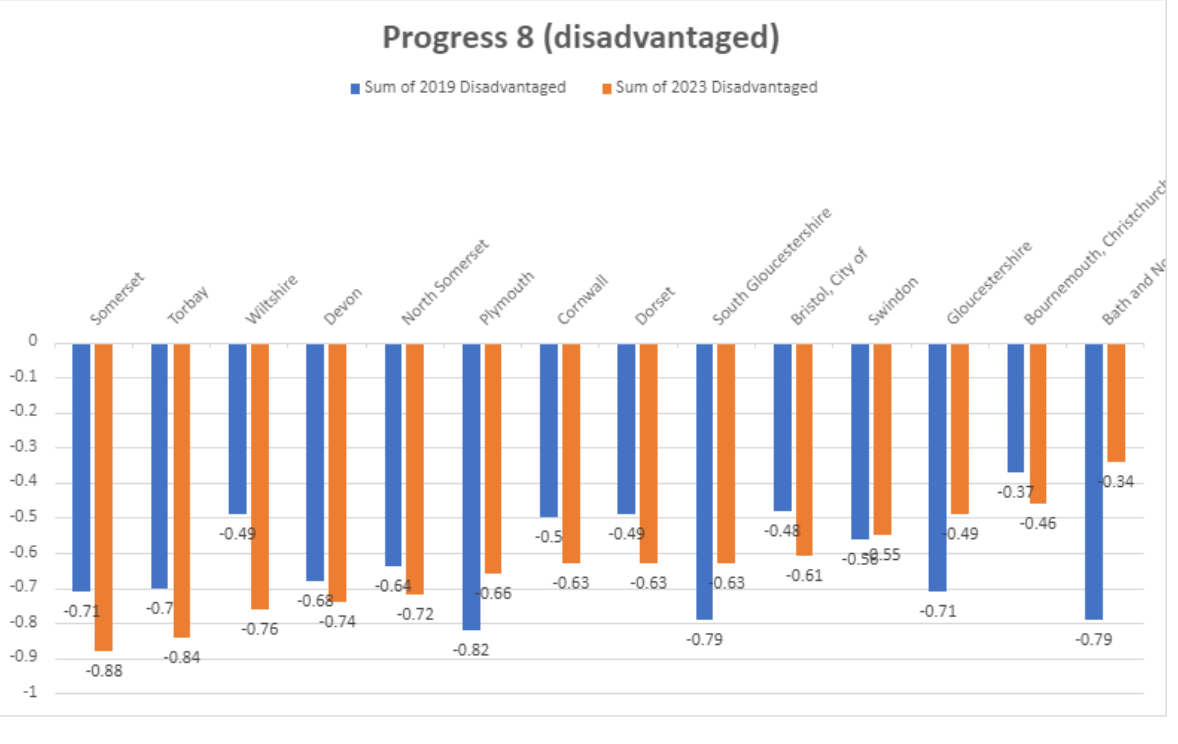
Take Alfie, for example. Alfie’s ten. He has two younger sisters. He lives in Chard with his dad and, over the last few years, Alfie and his sisters have been eligible for free school meals. In two months’ time, Alfie will finish primary school more than a year (13.6 months) behind his friends. He will be part of the 43% of children in the region who do not meet expected standards in English and maths (DfE, 2023).
Fast forward five years and that gap between Alfie and his friends will have almost doubled in size (EPI, 2023). What this means—in reality—is that come August 2029, as things stand, as Alfie’s friends pick up a mix of 4s, 5s and a few 6s in English and Maths, we’re currently on track to hand Alfie an envelope with two 3s instead (EPI, 2023). Children like Alfie are statistically unlikely to go to sixth form college, but if they do, they are on track to achieve almost 5 grades lower than their peers (EPI, 2023).
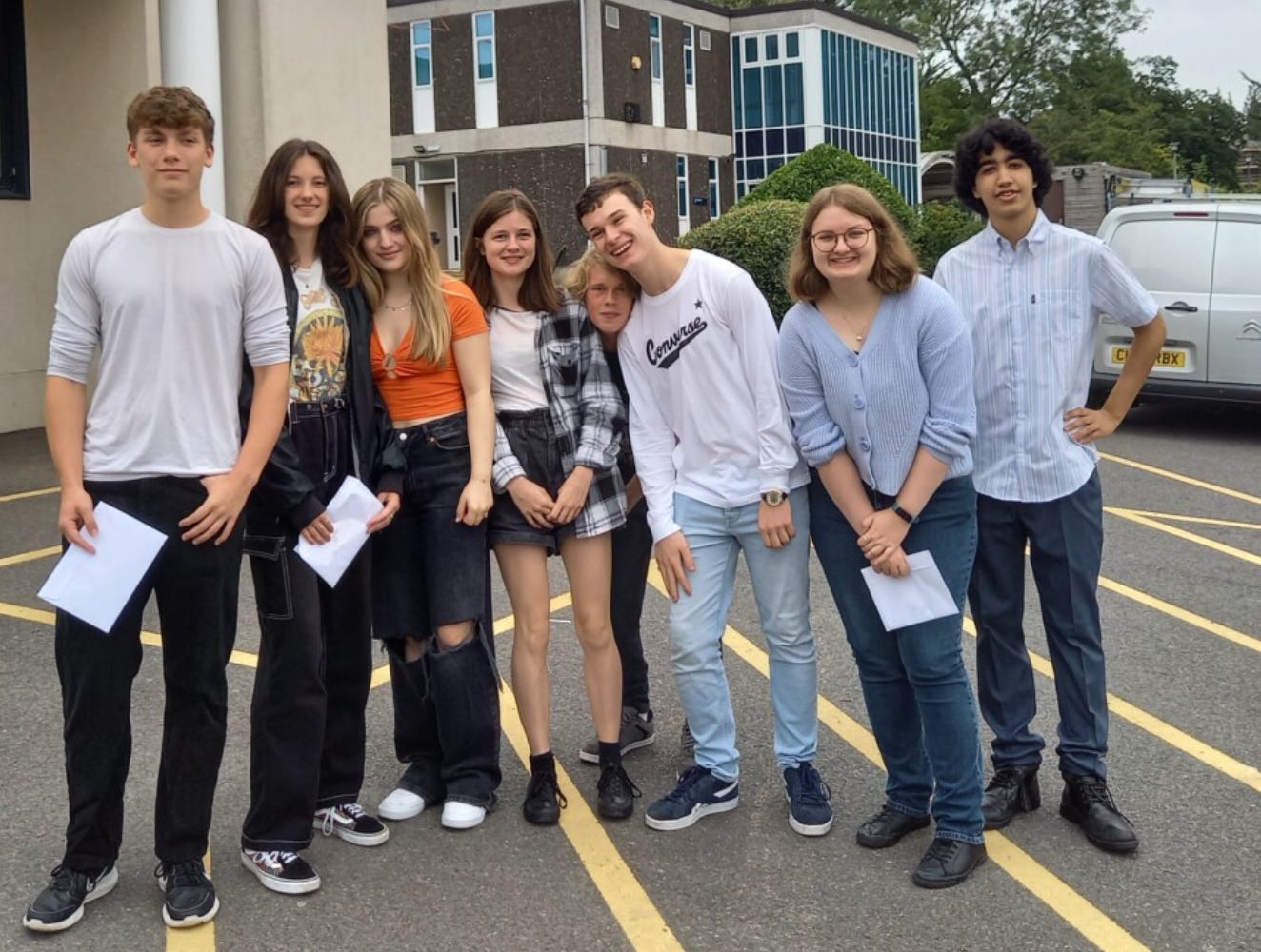
Alfie’s story is not unique. There are roughly 2,500 ‘disadvantaged children’ like Alfie taking exams in Somerset this summer. Their stories are indicative of systemic inequalities at both a national and regional level. According to the University of Exeter’s Centre for Social Mobility, upward occupational mobility in the South West was the 3rd lowest of 19 regions in 2015—with West Somerset ranked bottom of 324 local authority districts in the Social Mobility Index (Sim and Major, 2022).While schools cannot tackle these challenges on their own, we believe that they can (and should) be part of the solution. West100 exists to help make this happen.
We believe headteachers’ roles as civic and system leaders cannot be understated.
And we firmly believe that investing time and resources in the development of the next generation of leaders is critical to us unlocking positive change across the region. Because amidst the bleak educational forecast for the most vulnerable children in our care presently, we are steadfast in the belief that we have within us what it takes to change this narrative for our region. That’s why West100 focuses specifically on identifying and nurturing 100 future headteachers who will lead schools in the West country to ensure that all children thrive.
Across the region, momentum is growing among school and trust leaders, and wider civic actors, to close the disadvantage gap.
The EPI’s 2023 report held up the South West as one of the few places where academic outcomes are (marginally) improving. In 2023, it was the second most improved region after London for educational outcomes.
There were big gains in Progress 8 scores for students experiencing disadvantage in BANES, South Gloucestershire and Gloucestershire, although GCSE outcomes for disadvantaged pupils in Somerset and Wiltshire still fall far short (DfE, 2023).
And in the 2023 Social Fabric Index, it’s clear that within the West Country many of us benefit from strong relationships and a deep sense of collective belonging.
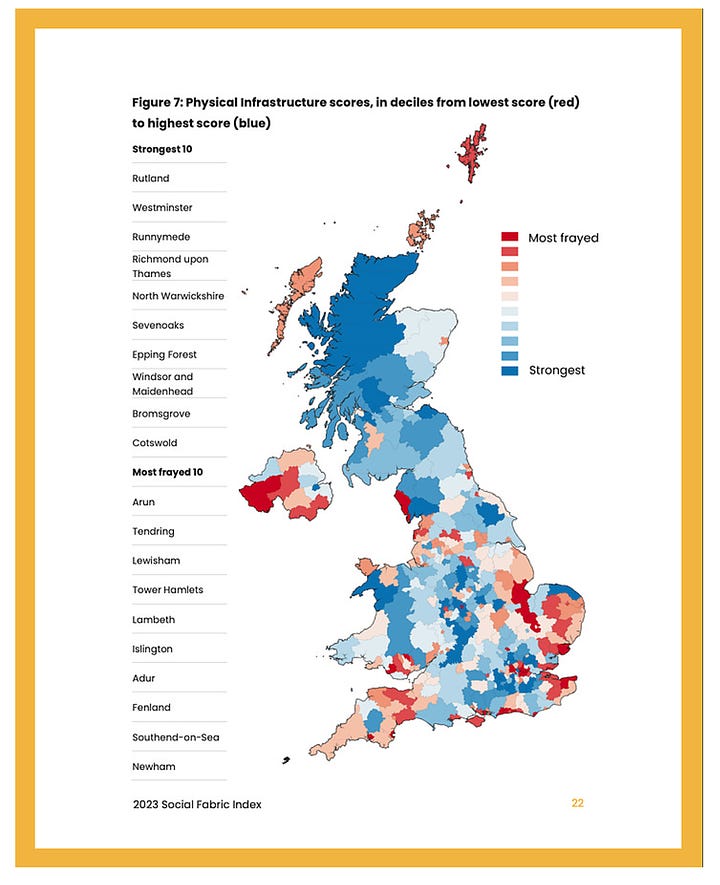
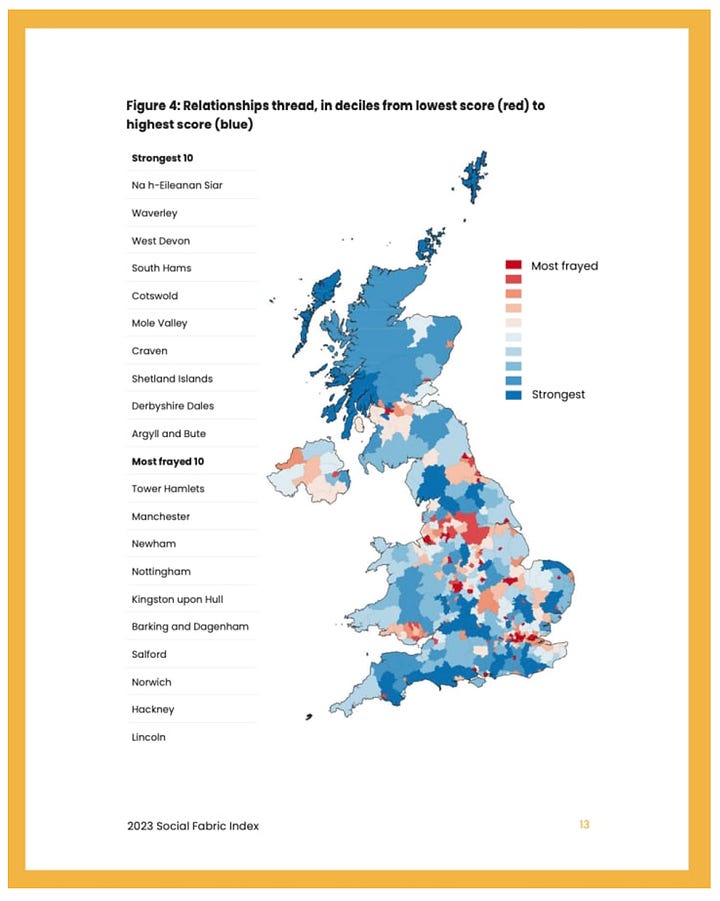
Individual and collective change
But there is still much, much more work to be done. To drive change forward in our region, West100 seeks to develop highly-networked, purposeful leaders, armed with a rich understanding of the unique challenges faced by their communities, as the catalysts for transformation. We believe great leaders can create the conditions – both individually and collectively - that enable others to flourish. This means developing practice which is:
Regionally led and co-created in partnership with regional trusts
Centred around fostering really strong relationships at an individual and trust level
Last year saw the maiden West100 cohort—13 aspiring headteachers in leadership positions in their schools—step up to this collective challenge. They represent seven leading school trusts from across the region (plus, the Reach Foundation) who are working together to change educational outcomes for children experiencing disadvantage:
Lighthouse Schools Partnership
Trust in Learning Academies (TiLA)
Blackdown Education Partnership (BEP), and
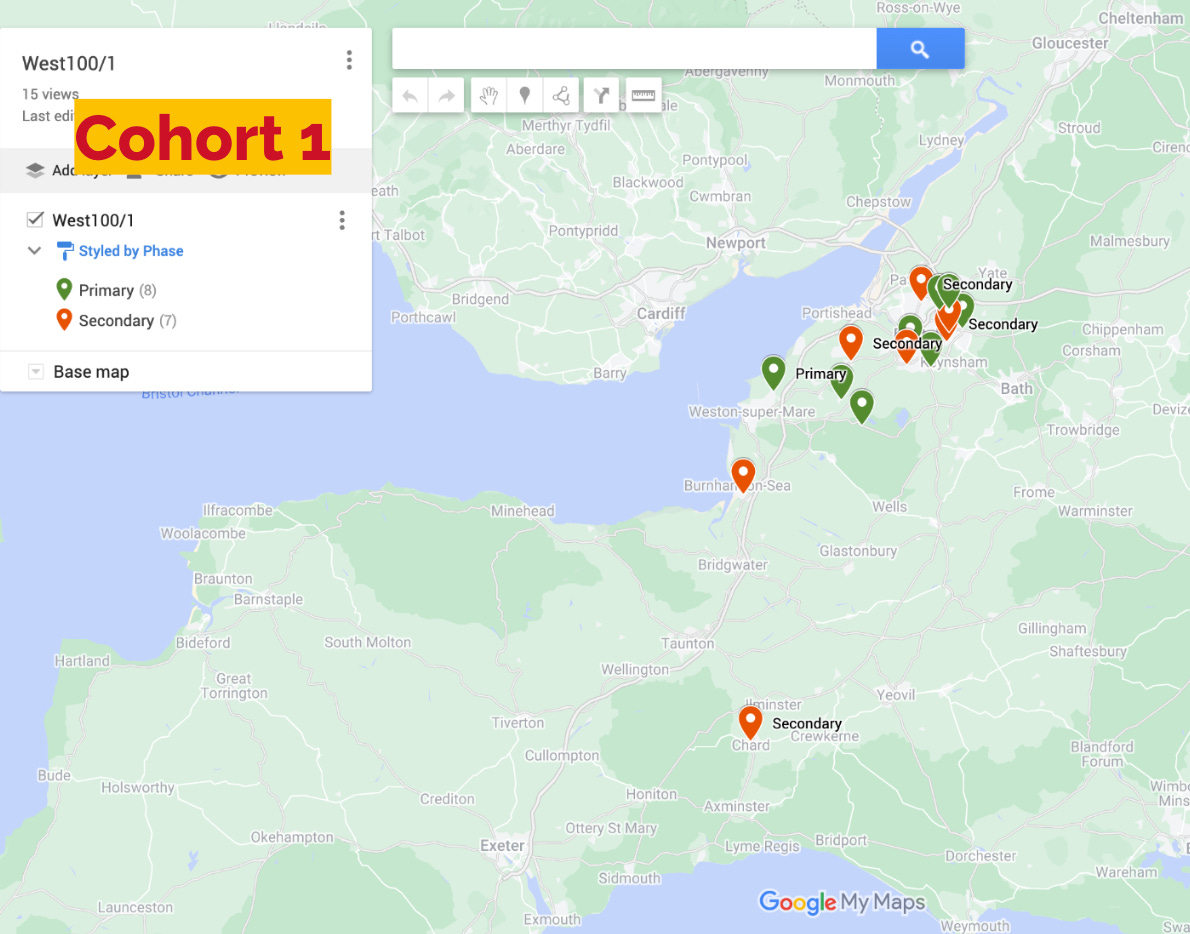
This work involves building a shared understanding about precisely what is putting pressure on people and connecting the resources required to tackle it head-on, together.
Trust leaders in the region are already sharing positive changes that these leaders are making within their school communities, ranging from exploring ways to better involve parents in their children’s school lives to re-thinking how they recruit (and retain) excellent teachers. They are also mapping the assets within their school communities and starting to build collaborative partnerships with a range of civic actors who, collectively with schools, can reduce stress and build resilience in families’ lives.
Call to action
So, if the challenge presented above resonates; if it sounds familiar; and if you believe that it is possible to eradicate educational inequality in our schools—we need you.
If you’re all the things above and you want to lead your own school in the next five or so years, we think that you should think about joining the second cohort of the West100 School Leadership Programme.
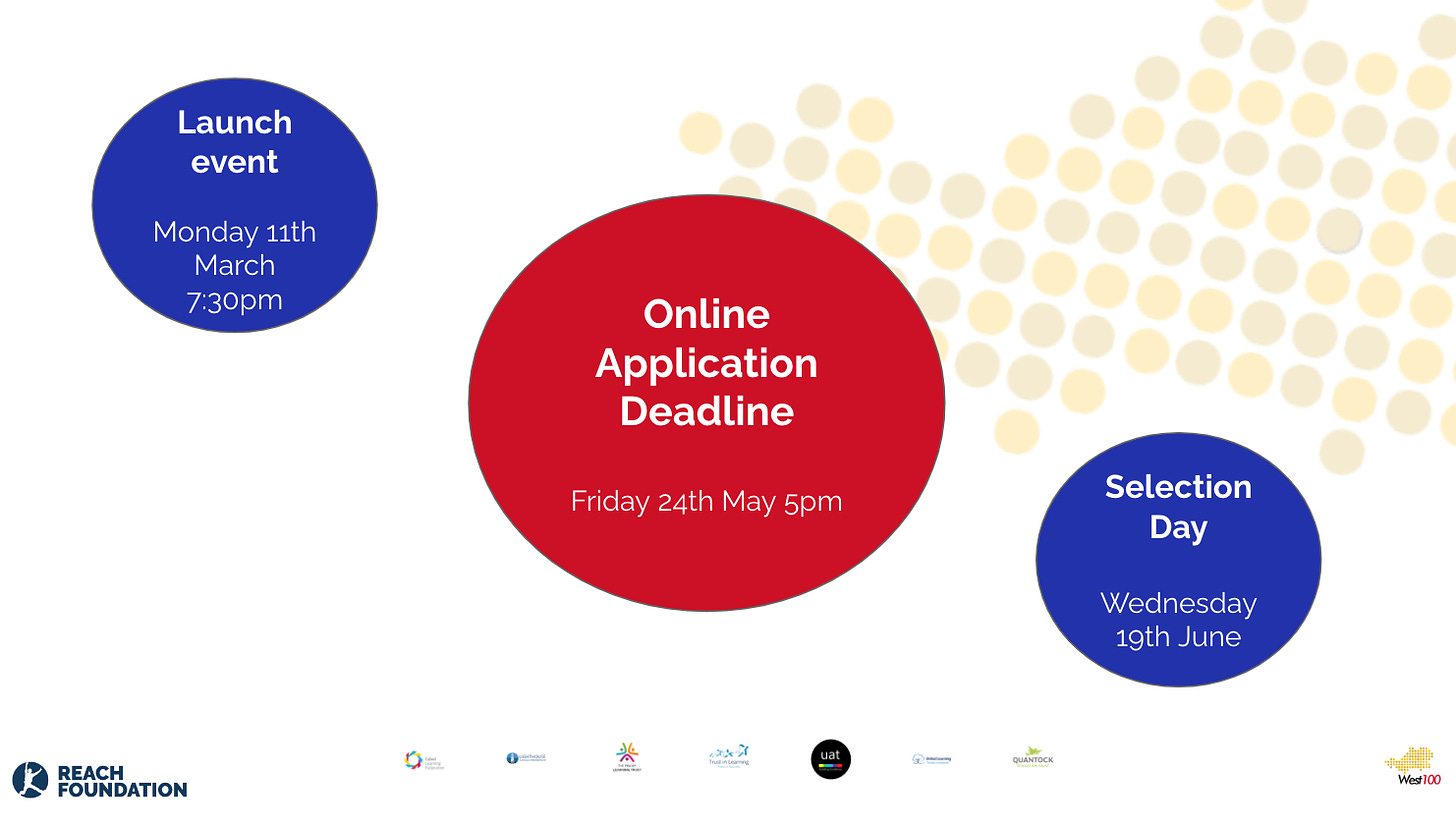
🤳 We’ll be sharing more information here about what it is and how it works exactly over the next few weeks. Subscribe below to receive updates as and when they’re published.
🧑💻 We’ll be holding online information events on Monday 11th March and Wednesday 20th March @ 7:30pm, for those interested to hear more about the programme, with plenty of time to ask questions too. If you’d like to join, please register your interest here.
And, finally, when you’re ready, apply here!





